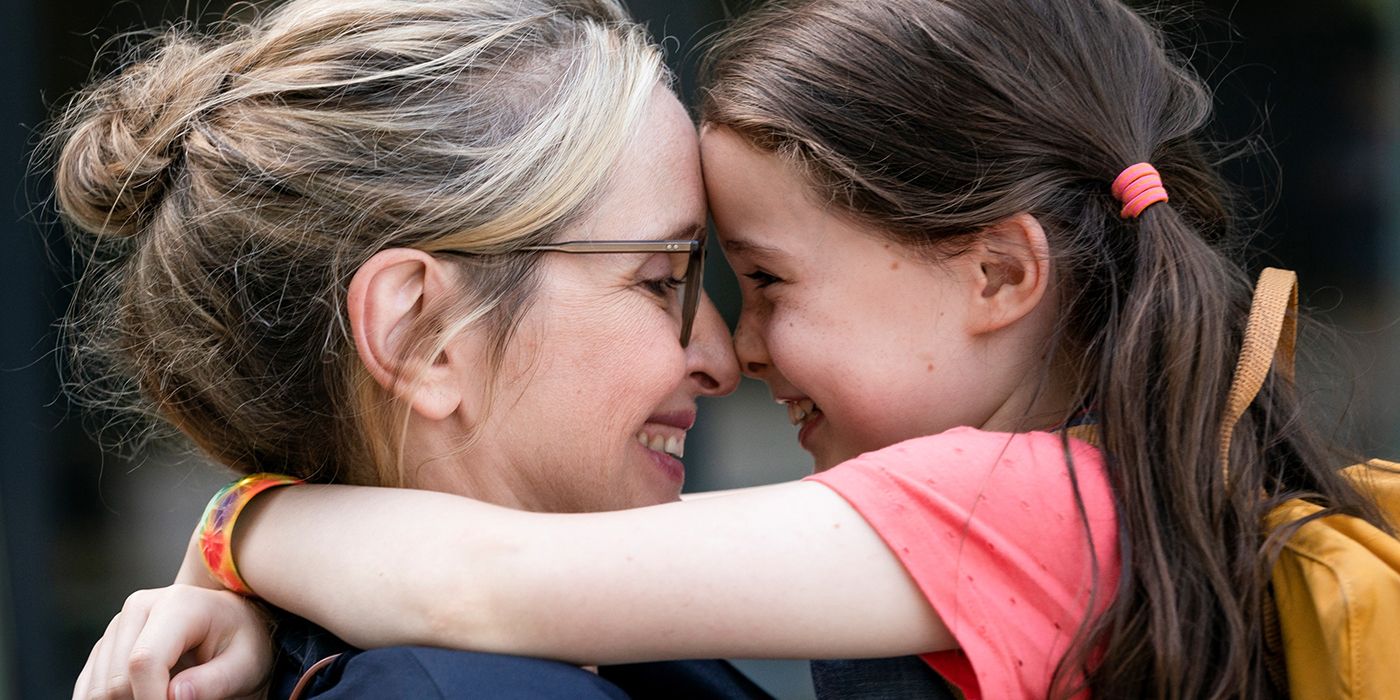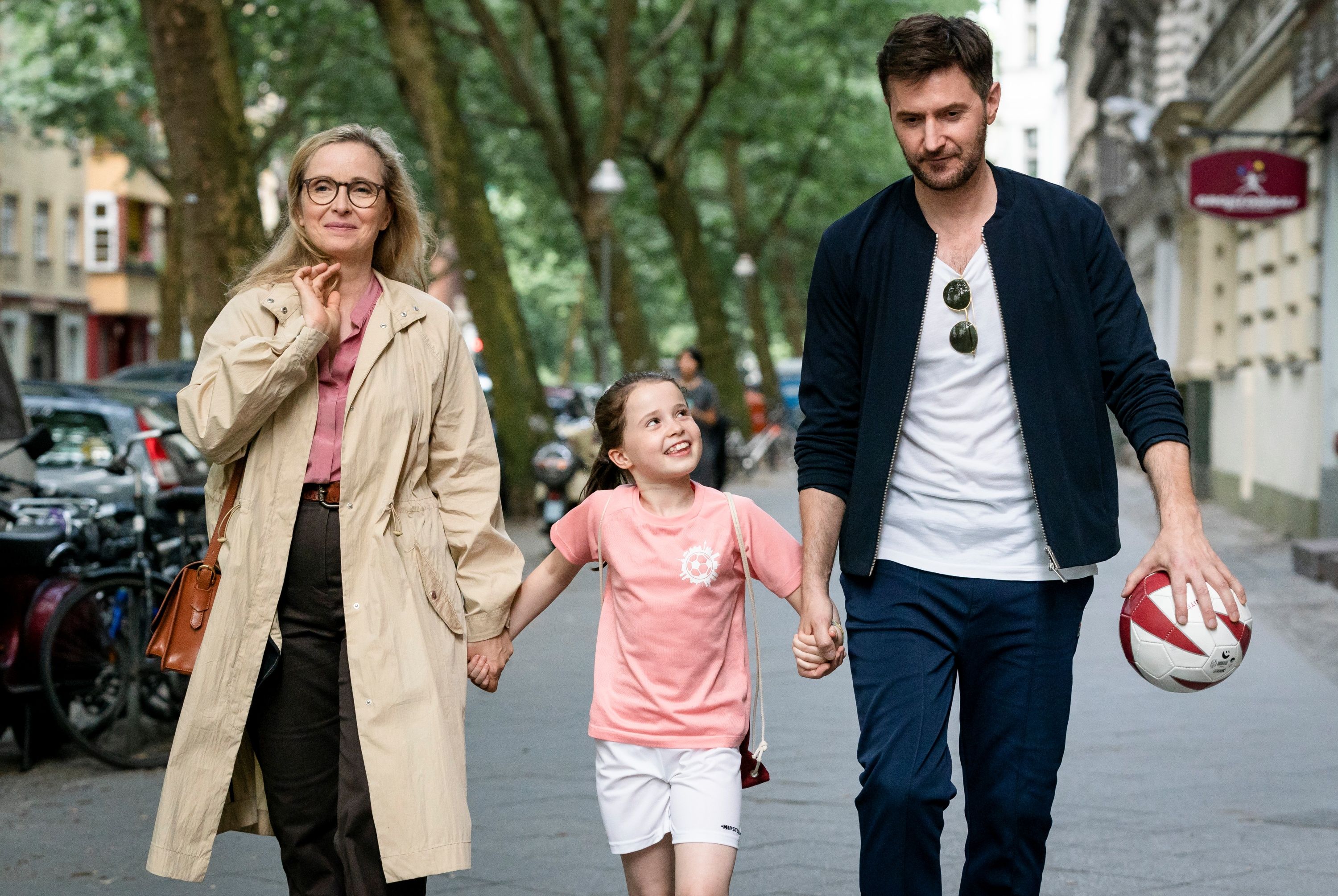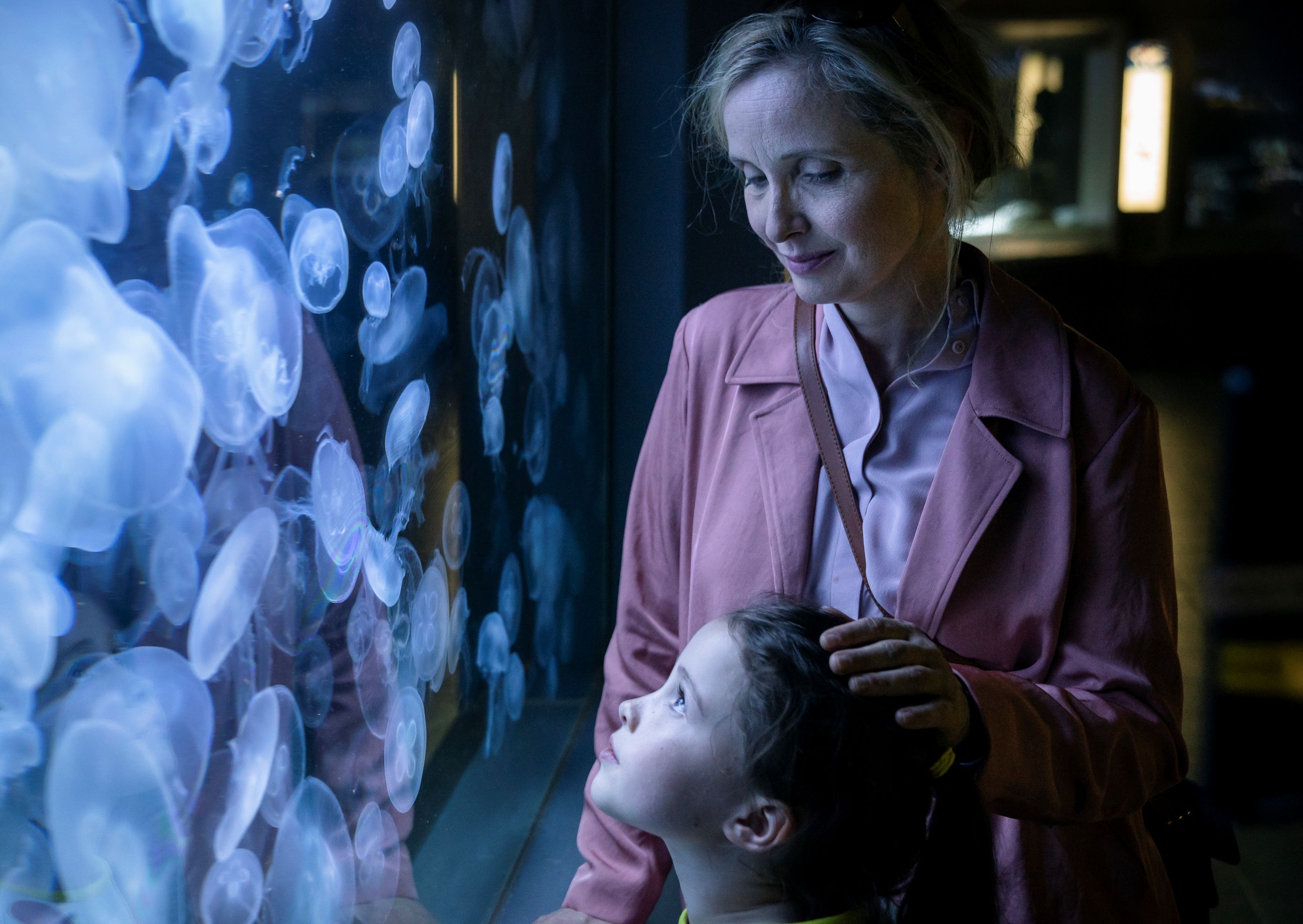Written and directed by Julie Delpy, the indie drama My Zoe follows the recently divorced Isabelle (Delpy), a woman trying to navigate how to co-parent her daughter with her argumentative ex-husband (Richard Armitage) who seems like he’s always looking for a fight. But when their daughter Zoe (Sophia Ally) suffers an unexpected life-altering injury, Isabelle devises a plan that pushes the bond between parent and child to the limits of humanity.
During this 1-on-1 interview with Collider, filmmaker/actress Julie Delpy talked about the evolution of this story, developing a character that’s not the most lovable, defying expectations, and why this film was painful to make. She also talked about her first TV project On the Verge, and why it’s important to keep at least a little seed of truth in every character she plays.
Collider: You conceived of and wrote this a long time ago and it’s been evolving for awhile. What was the seed that started all of this and how did that ultimately become what we see now?
JULIE DELPY: At first, it was the idea of being a mother and playing the role of the mother and what is expected of a mother and woman. There were these discussions that I had about fate with [Krzysztof] Kieślowski, with whom I was working at the time, in my early 20s. He was very supportive of me writing and directing. Basically, I was just exploring this idea of going beyond what is expected of a woman and a mother, especially in relation to loss. I was interested because there has been so many movies about loss and about accepting loss and coming to terms with it, but what if you go to a place that’s not really explored, which is a woman not accepting that loss.
If you look at history, the idea of losing a child, for a woman, was an everyday thing that they had to accept, almost every day. Every woman in their lifetime had to accept the loss of a child. It would happen at birth and it’s still happening in a lot of places. I was listening to Noam Chomsky talking about the whole idea of little angels in heaven being created by those women that would lose their babies at birth. Basically, women invented a heaven for their little babies. It’s so ingrained in women to accept grief and move past it, so they can keep on procreating and not worrying about the dead baby because he’s in heaven.
Were there aspects of your own life that also influenced this, in some way?
DELPY: This film is really an attempt to create a woman with a journey that goes against this expectation. That was the starting point, exploring those feelings and ethical issues. There’s also the issue of separation. When I was writing the screenplay, I was in the middle of separating and child custody, and it was very, very difficult for me. The idea of taking my child only half the time was almost unbearable. It was like cutting a child in half. But I had to comply because I’m in California and men are kings there. That’s how the system works. I understand intellectually that it’s fine, but emotionally I was a wreck, and it came out in the film.
The film is a bit of an allegory on child custody. To me, child custody and sharing my child was like killing the child that I was raising with that person and create a new one that I was raising by myself, half the time, for half of his life. So, the film came from all of those crazy emotions and was also an intellectual attempt to try something that’s never been done, with the mother not accepting the loss and going into territories that were completely uncharted. There were all of those different emotions when I wrote the screenplay. Maybe it’s too much to take on, but that’s what I did.
After taking such a journey with this, from the original idea to getting it made to now getting it out there, what has been the most personally and creatively satisfying about it for you?
DELPY: Well, the process was painful to make this film because we didn’t have enough money or enough time. It was a very, very tight budget, with very difficult conditions. I’m still recovering from it, in a way. Not emotionally, but physically recovering from it. It was such a fight that it exhausted me. It’s funny that some people got angry at me, after this film because I suffered so much and people didn’t see what the real meaning of the film is. I created this character that’s not really likable. She’s cold when people try to make her feel better. She’s only warm to her child, really. With ex-husband, I feel sorry for him, even if he’s not a very great man, because he might have tried to make her feel better at times, but she closes herself in pain.
Could you identify with Isabelle?
DELPY: Some people in pain open and share and you can make them feel better, but she’s not that kind of person. There’s a little bit of me in her, in that sense. When I’m in a lot of pain, I can push people away. She’s not the easiest or most lovable character, but at the same time, I like her because she’s true to her own journey. She follows through, even if she’s doing some things that are completely unethical. I always have a certain admiration for people that are driven by a genuine feeling, and not something creepy. She’s driven by the biggest love in the world, the love of a child.
You did your first TV project, On the Verge, during the pandemic and with all of these new safety protocols. How did you end up creating that story and how did you know that it was a TV series?
DELPY: I always wanted to do a series about different women, who are in their ‘40s. It’s really inspired by my close friends and their struggles of becoming mothers late in life. You define yourself by being this individual, and then at 38, you become a mother and it really defines your life completely. Not in a bad way, in a great way. For me, it’s been great. Some people lose their own self and their own goals. I see how different it is. No matter what you say, being a mother is being a mother, and it’s an essential part of raising a child. You can say that we’re all equal, but there is something visceral about motherhood that attaches you to a child in a really strange, crazy way.
I always remember when my son was born, and still today when he gets hurt, I have a pain that takes over my body. It’s uncontrollable. It’s deep, deep in my bones, and I’m not exaggerating. It’s this weird feeling inside. I don’t even know why it does that. I don’t understand. It’s very strange. I’m linked forever with this little creature, who’s now almost taller than me. It’s so weird and it’s beautiful. It’s amazing. It’s a deep, deep, deep bond. At least, for me it’s like that. It’s always been like that, from the minute he was born, and it’s almost crazy. On the Verge is very much about motherhood. It’s women, but it’s also motherhood, and all of the different ways of dealing with it. It’s a comedy, so it’s fun. It’s not the direction of what My Zoe is.
Does it feel like that’s a character that’s closer to who you are?
DELPY: When I was working with Kieślowski, he always said to just take a little seed of truth and build a tree of fantasy. So, there is a little bit of me in My Zoe, in the character, and there is a little bit of me in the character I’m playing in On the Verge. I like to take a little bit of truth within me and grow into a complete different person. Isabelle is very different from me, in so many ways, but there is a little bit of truth in it, which allows me to follow that little red line inside and be able to go towards her and have empathy for her. You need empathy for your own character. When I was working with Richard Armitage, he was saying, “I have empathy for him because he’s lost. He’s weak. His hatefulness is weakness.” I think it’s always important to keep that little seed of truth.
My Zoe is in theaters and will be available on-demand on May 25th.



